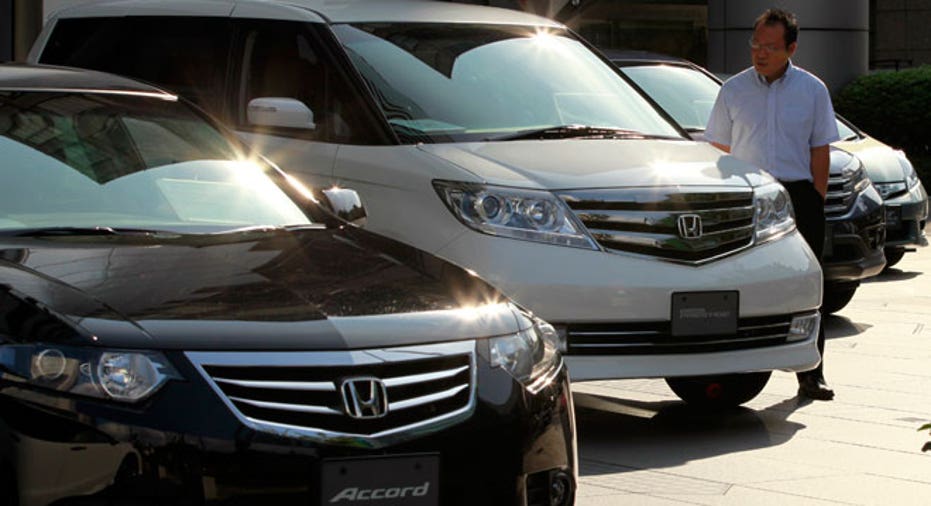7 Ways Cheap Car Insurance can Backfire

Everybody wants lower car insurance rates, but you could wind up sorry if you shop by price alone.
Skimping on coverage can leave you financially exposed and wishing you had spent more for better protection and service.
"Don't shortchange yourself," says Anna Molin, an independent insurance agent with Huntington & Wheatsworth in Towaco, N.J. "In the long run, it's not worth it, and it's really not that much more to get something decent."
That doesn't mean you ignore price. But when comparing car insurance quotes and policies, make sure you compare apples to apples.
"People think they're comparing apples to apples, but sometimes those apples are rotten," says Addison Gardner, owner of The Gardner Insurance Group in Oklahoma City.
Here are seven ways cheap car insurance can backfire:
1. Not enough liability insurance to cover your assets
Most states require you to have liability insurance, but the minimum amounts you have to buy are low.
California's minimum liability limits of 15/30/5 were set in 1967, says Tully Lehman, a spokesperson for the Insurance Information Network of California. (That's $15,000 per person for bodily injury liability, $30,000 for bodily injury per accident and $5,000 for property damage.)
"You can exceed that $5,000 limit very quickly," he says. "The same goes for bodily injury."
Once the limits are exceeded, you're on the hook for paying damage or injuries you cause, and accident victims can sue you for your assets.
Gardner says he runs into a lot of consumers who got sold a cheap policy and were told they had "full coverage." But actually they had only the bare-minimum liability insurance with some collision and comprehensive coverage.
"If you own a $200,000 house and you hit someone with a $100,000 Mercedes, guess where the lawyers are going to dip to get the money?" he says.
2. An unaffordable auto insurance deductible
Raising the deductible on collision and comprehensive insurance is one way to lower premiums, and it's preferable to forgoing collision and comprehensive altogether if you have a car with some value, Molin says.
But don't raise the deductible so high that you can't afford to pay it when your car needs repairs.
3. Stingier coverage
In some states, some non-standard car insurance policies contain exclusions in the fine print, says Penny Gusner, consumer analyst for CarInsurance.com. These are policies promoted as cheap coverage for risky drivers.
For instance, unlike most standard policies, some no-frills policies don't extend coverage to rental cars, and they don't automatically extend coverage to a new car when you replace your vehicle. (With a standard policy, your current insurance typically extends to a replacement vehicle, although you're required to notify your insurer within a certain timeframe, usually 14 to 30 days, after buying a car.)
4. Higher rates for tiny infractions
With a cheap policy you might get dinged harder for minor violations or accidents than you would with other policies, Gusner says. That means you'll pay higher premiums at renewal time, and the cheap policy might end up costing you more in the long run.
5. Bad customer service
Check out the reputation of an insurance company before buying. Many state insurance departments post information about complaints against insurance companies.
"Ask yourself if the company is going to have your best interests at heart when it comes time to file a claim," says Lehman.
Molin says beware of companies you've never heard of.
6. No extras when you need them
Options like rental car reimbursement and emergency roadside service don't cost that much, but they can come in awfully handy. Rental car reimbursement pays for a rental car while your vehicle is in the shop after a covered accident. Emergency roadside service pays for towing and service if your car breaks down or you lock yourself out.
7. Not enough protection for you and your passengers
James Kuryak, principal of Niagara National Insurance in Buffalo, N.Y., says too often customers who buy a healthy amount of liability insurance to protect their assets skimp on uninsured motorist coverage. This insurance covers you, the insured members of your household and passengers for injuries or death when an uninsured or hit-and-run driver causes an accident. Kuryak recommends bumping up uninsured/underinsured motorist coverage to the limits of your liability insurance.
He also suggests increasing personal injury protection insurance if you're in a no-fault state and you routinely shuttle around a lot of passengers, such as your kids' friends to soccer practice or school.
Overall, Kuryak says, review your car insurance coverage periodically to make sure it's sufficient for your life situation today.
"At the time of an accident no one thinks about what they paid for insurance anymore," he says. "It's all about what coverage you have."
The original article can be found at Insurance.com:7 ways cheap car insurance can backfire



















